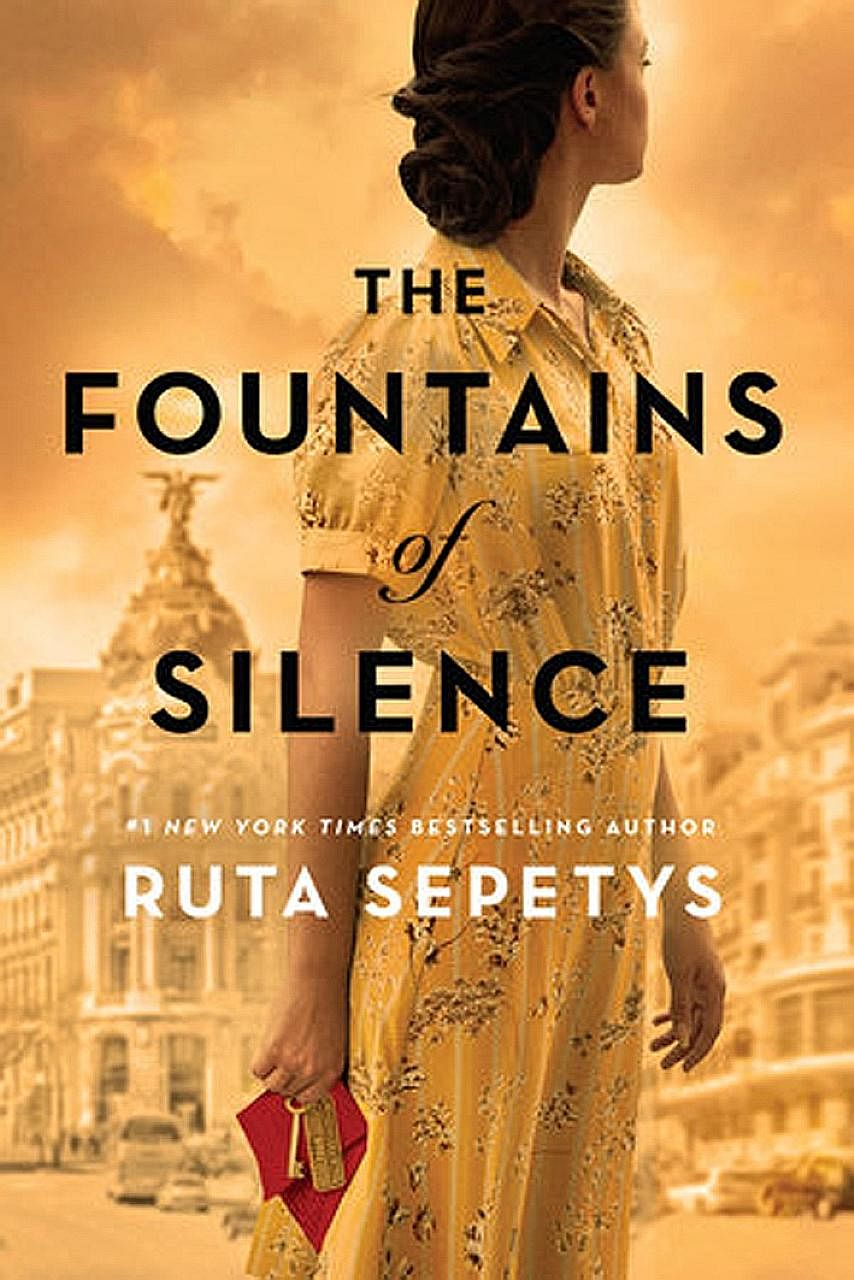HISTORICAL FICTION
THE FOUNTAINS OF SILENCE
By Ruta Sepetys
Penguin Books/ Paperback/ 495 pages/$19.80/ Books Kinokuniya/3.5 stars
American writer Ruta Sepetys has a knack of looking to history for forgotten stories, and then giving a voice to those who have fallen through the cracks.
Her Carnegie Award-winning Salt To The Sea (2017), a riveting account of the World War II sinking of the Wilhelm Gustloff ship that killed more than 9,000 people - mainly refugees - in what still is the most deadly maritime disaster, struck a chord as it gave voice to the displaced at the height of the contemporary migrant crisis.
In her gritty follow-up The Fountains Of Silence, she looks to a bygone dystopian Spain under a dictatorial General Francisco Franco, who led with an iron fist after overthrowing democratic forces in the Spanish Civil War (1936-1939) until his death in 1975. Just as in many authoritarian regimes, the freedom of religion and the right to free speech were suppressed in a caste-based society where disbelievers and their families can get thrown into rehabilitation camps.
Sepetys deftly shines a light on the coordinated campaign by Catholic missionaries and the state to rob birth parents of their babies, which are then sold to families which are seen as "less degenerate".
One estimate alleges that more than 300,000 babies were trafficked between 1939 and the late 1980s, with the operation having continued into the early days of transitioning into a democracy.
Her writing is evocative in its simplicity and mostly effective in highlighting the pervasive fear and the consequence of silence.
One of the novel's most memorable characters is Puri, whose work at an orphanage means she gradually pieces together what has been happening under her nose.
"With all they've done to make Spain the wonderful country she loves, how could she ever doubt that? But a quiet part of her does," writes Sepetys of Puri in a powerful chapter set at the orphanage. "Lying is a sin... But questioning is an insult to her leader and her country. It's ugly and disrespectful."

Her cousin Rafa and his friend Fuga, both hardened by years at a labour camp, are gravediggers who question the empty child coffins they are being tasked to bury.
There is plenty of emotional steel and depth in these characters.
But they play supporting roles - the main story is about a forbidden love, between Daniel Matheson, an aspiring Texan photojournalist and unwilling heir to an American oil magnate, and Ana - Rafa's sister, an independent and ambitious woman with secrets.
Their saccharine relationship ("I know that I'd never be able to have a boy like Daniel") feels one-dimensional and blunts the book's impact by not doing enough justice to the regime's real atrocities.
If you like this, read: The Secrets We Kept by Lara Prescott (Hutchinson London, 2019, $27.95, Books Kinokuniya). It is a peek behind the totalitarian Soviet Iron Curtain about the covert propaganda warfare waged by the West using Russian writer Boris Pasternak's acclaimed novel Doctor Zhivago.

